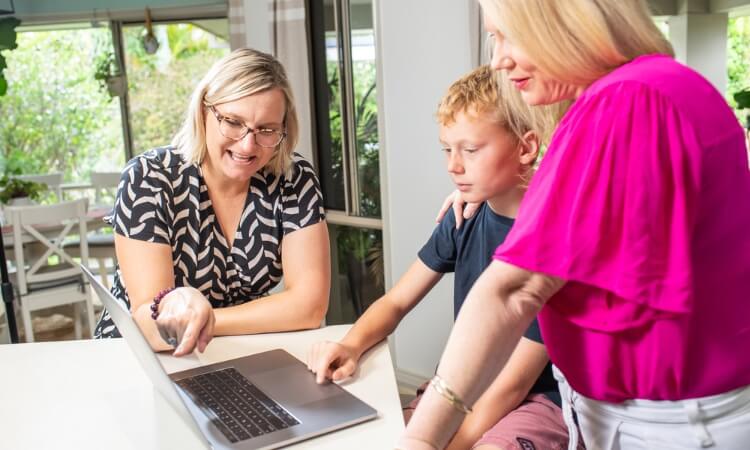Fight against children’s mental health crisis gains Momentum

A free online mental health platform co-designed by young people, for young people has been launched to tackle the ongoing children’s mental health crisis.
Momentum is Australia’s most comprehensive self-help digital mental health program that brings vital evidence-informed treatments, tools and techniques to the fingertips of seven to 17-year-olds who are experiencing common mental health issues.
Led by the University of Southern Queensland, the $5 million project brought together researchers and experts in children's and adolescent’s mental health and digital health from six universities and six other organisations nationwide.
The innovative platform was also designed and developed with the help of hundreds of young people, parents and mental health professionals.
Project lead Professor Sonja March said the team was proud to launch the platform to meet the unprecedented demand for mental health care in young people.
“Momentum is essentially the product of two decades of feedback from young people who have given us their valuable time to tell us what they want and to improve digital programs,” Professor March said.
“Almost 14 per cent of young people in Australia have a mental illness, and unfortunately, about half of them don’t receive help.
“This is only getting worse in Australia as there are simply not enough therapists to help everyone.
“With waiting lists over 12 months to see a psychologist, Momentum is one solution that can help young people earlier and set children on a positive start through life.”
The new platform extends from Professor March's work with Griffith University researchers, professors Caroline Donovan and Sue Spence with the popular BRAVE Self-Help program, which has reached more than 80,000 young people with anxiety.
Professor March said Momentum was a one-stop shop for young people to get help for a variety of mental health problems like anxiety, depression and sleep difficulties.
“Most digital programs available to young people only offer help for one specific problem or can only be done with a therapist. However, many young people don’t have access to face-to-face care or prefer not to see someone in person,” Professor March said.
“Momentum will get young people the help they need, when they need it, using a method they are used to.
“We know that the earlier we can help young people, the better their outcomes will be, so it’s important to make services available to them as soon as possible.”
Professor March said the safe and easy-to-use platform, built specifically for children and adolescents, provides a personalised experience for each user.
“Momentum is unique because it delivers a thorough assessment of the young person’s situation to determine their need for help,” she said.
“It then builds a personal program just for them, with sessions that target topics relevant to that young person’s mental health difficulties.
“Momentum also gives control to the young person and their family. Young people can track their progress through the program, check how their feelings change each session, and use the program to practise skills in the real world.
“We’ve built a platform that young people have asked for, and we will keep improving the program with young people.”
Momentum was a collaborative project developed by researchers, experts and web designers from the University of Southern Queensland, Griffith University, The University of Queensland, Queensland University of Technology, The Australian National University and Federation University, with additional input from industry partners Kids Helpline, Stride, Education Queensland, West Moreton Health, Children’s Health Queensland and Darling Downs and West Moreton Primary Health Network.
The research was supported by the Australian Government under the Medical Research Future Fund.
Momentum is available to anyone aged seven to 17 in Australia.


